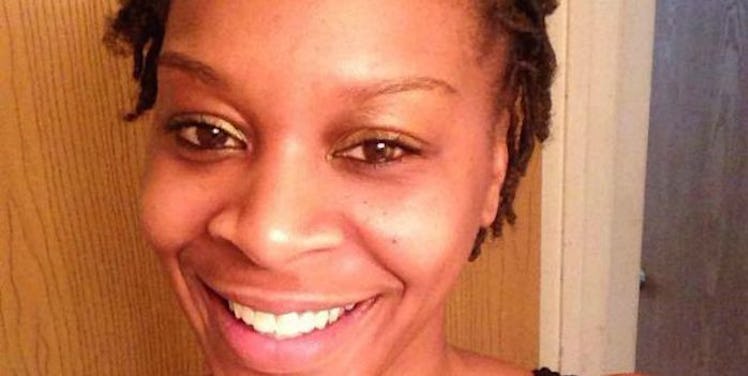
Homicide Or Not, Let's Not Forget The Nature Of Sandra Bland's Arrest
On July 10, Sandra Bland was arrested after a traffic stop for failing to signal before a lane change.
On July 13, Bland was allegedly found hanging in her jail cell from "self-inflicted asphyxiation."
In the following weeks, Bland's family members, along with many others throughout the country, have questioned the nature of her death.
As abhorrent as the case is and continues to become, it is equally problematic to lose focus on what perpetuated the situation in the first place: the nature of Bland's arrest.
Though Huffington Post reports that an initial autopsy shows "no evidence suggesting that this is a homicide," there has still been an immense debate as to why Bland would commit suicide, particularly because she was elated to soon start a new job.
It's unfortunate to say, but discussing whether or not Bland's death was by means of suicide or homicide is to miss the significance of this case. Instead, how such a situation like this can be prevented in the future is of much more pertinence.
The dash cam recording from Bland's arrest was recently released. Although much of the altercation occurs outside the frame, Huffington Post has compiled a transcript of the audio.
When state trooper Brian Encinia comments that Bland looks "irritated," Bland responds, "You were speeding up, tailing me, so I move over and you stop me. So yeah, I am a little irritated."
After a brief moment of silence, Encinia then asks Bland if she could put out her cigarette. Upon which, Bland asks, "I'm in my car, why do I need to put out my cigarette?" Then, Encinia immediately tells her, "Well you can step on out now."
Before going further into the transcript, it's important to dissect the reasons as to why Encinia initially asks Bland to step out of her vehicle.
The state trooper asks Bland to extinguish her cigarette. When she inquires as to why, he tells her to step out of the car.
Of particular relevance is a recently published article from the LA Times, in which several police experts weighed in on the tactics seen and heard in the video of Bland's arrest.
Though there was a consensus that an officer can indeed order someone out of his or her car, "whether an officer can command you to extinguish a cigarette is murkier."
One expert, who did not believe an officer could order someone to put out their cigarette, stated:
“If a person was out of the car, then an officer could determine it poses a safety threat and order it be put out. But it is hard to argue that inside the car.”
This, however, raises further questions. If Encinia believed Bland's cigarette to be a safety threat, why didn't he ask her to extinguish it upon first seeing it?
Similarly, even though it may be legal to order someone out of his or her car, that does not mean it should be a standard practice.
When Encinia asks Bland to step out of her vehicle, the situation continues to escalate. At one point, Encinia draws his stun gun, points it at Bland, and shouts "I will light you up!"
Yet, at the end of the dash cam video, Encinia can be heard talking to a superior officer about how he supposedly tried to de-escalate the situation, saying, "I only took enough force as I — seemed necessary... I allowed time to de-escalate and so forth."
This also comes after Encinia slams Bland's head to the ground and, upon her telling him she has epilepsy, he responds, "Good. Good."
Contrary to his sentiments, it seems like Brian Encinia took every possible opportunity to escalate the situation. Now, where do we go from here?
There's ostensibly a major new case of police brutality every other week, so much so, it's becoming disturbingly difficult to separate the facts between each respective case.
Conservatives are likely to say that if citizens would simply listen to orders given to them by police officers, there would not be as many situations like the one seen in the Sandra Bland case.
But, to deny the ever-growing problem of police brutality, especially in regard to minorities, is ludicrous.
Police officers, like the citizens they are sworn to protect, must be held accountable to the laws they intend to uphold.
It's difficult to see how something good can be gained from the awful death of Sandra Bland, but change needs to happen. Be it suicide or homicide, it does not matter.
Sandra Bland should still be alive. If more changes to police practices are not made, blood will continue to be shed.